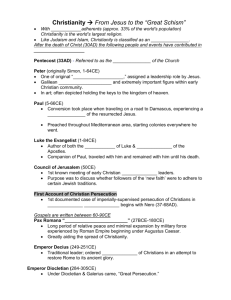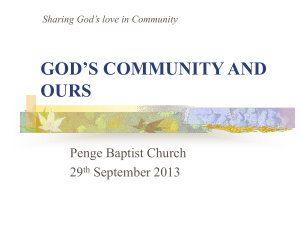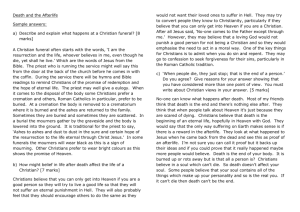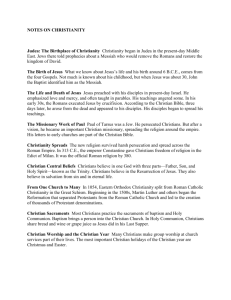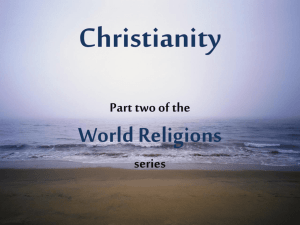Religion and equality
advertisement
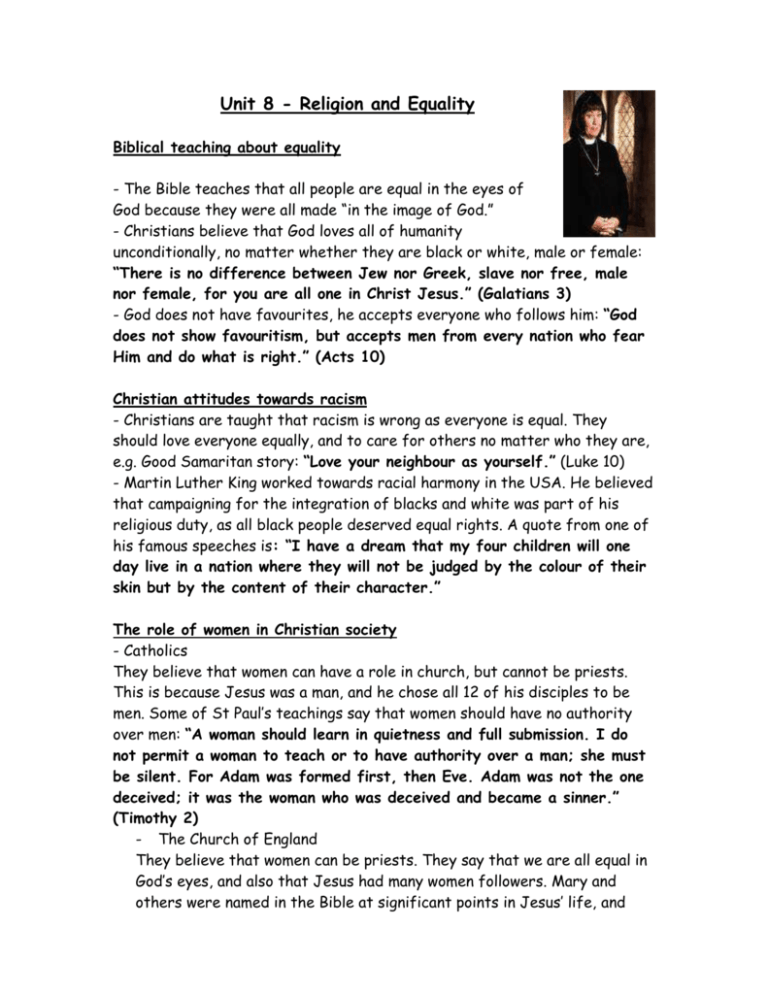
Unit 8 - Religion and Equality Biblical teaching about equality - The Bible teaches that all people are equal in the eyes of God because they were all made “in the image of God.” - Christians believe that God loves all of humanity unconditionally, no matter whether they are black or white, male or female: “There is no difference between Jew nor Greek, slave nor free, male nor female, for you are all one in Christ Jesus.” (Galatians 3) - God does not have favourites, he accepts everyone who follows him: “God does not show favouritism, but accepts men from every nation who fear Him and do what is right.” (Acts 10) Christian attitudes towards racism - Christians are taught that racism is wrong as everyone is equal. They should love everyone equally, and to care for others no matter who they are, e.g. Good Samaritan story: “Love your neighbour as yourself.” (Luke 10) - Martin Luther King worked towards racial harmony in the USA. He believed that campaigning for the integration of blacks and white was part of his religious duty, as all black people deserved equal rights. A quote from one of his famous speeches is: “I have a dream that my four children will one day live in a nation where they will not be judged by the colour of their skin but by the content of their character.” The role of women in Christian society - Catholics They believe that women can have a role in church, but cannot be priests. This is because Jesus was a man, and he chose all 12 of his disciples to be men. Some of St Paul’s teachings say that women should have no authority over men: “A woman should learn in quietness and full submission. I do not permit a woman to teach or to have authority over a man; she must be silent. For Adam was formed first, then Eve. Adam was not the one deceived; it was the woman who was deceived and became a sinner.” (Timothy 2) - The Church of England They believe that women can be priests. They say that we are all equal in God’s eyes, and also that Jesus had many women followers. Mary and others were named in the Bible at significant points in Jesus’ life, and there are books in the Bible named after women. They use quotes such as: “There is neither male nor female, you are all one in Christ Jesus.” (Galatians 3) Christian views on the truth of other religions Exclusivism Some Christians believe that only Christians have the truth and only they will go to heaven. They use quotes like Jesus saying: ‘I am the way the truth and the life. No-one comes to the Father except though Me.” (John 14) They will often try to convert others. This is called ‘evangelism’. They may also become ‘missionaries’, and travel abroad to try to convert others. Inclusivism Other Christians believe that all religions hold some truth but Christianity has the most. However, people from all religions can still go to heaven if they have lived a good life and tried to follow God in the way they know. They use quotes like: “There are many rooms in my Father’s house.” Christian beliefs about forgiveness and reconciliation - Christianity teaches that Christians should forgive others. Jesus taught his followers the Lord’s Prayer, and this says: “If you forgive men when they sin against you, your father will also forgive you.” - Forgiveness and love for others was at the centre of Jesus’ teaching: “Peter came to Jesus and asked, ‘How many times shall I forgive my brother when he sins against me? Is it up to seven times?’ Jesus replied: ‘I tell you, not seven times, but seventy-seven times.’” (Matthew 18) This number symbolizes that Christians should always forgive others. - There are some important places in Christianity which are dedicated to peace and reconciliation, such as Coventry Cathedral. - Holy Communion (also known as the Eucharist – where Christians eat bread and drink wine) is thought to remind believers that they are all the same. During this service, the priest says: “Though we are many, we are one body, because we all share in one bread.” - The ecumenical movement is when different groups of Christina try to unite reminding themselves of their common aim. - The Catholic Church have Confession (also known as the Sacrament of Reconciliation), where they can go to a priest and confess to their sins, and ask to be forgiven. The priest will tell them what they need to do to be forgiven, e.g. say certain prayers or do community work.


